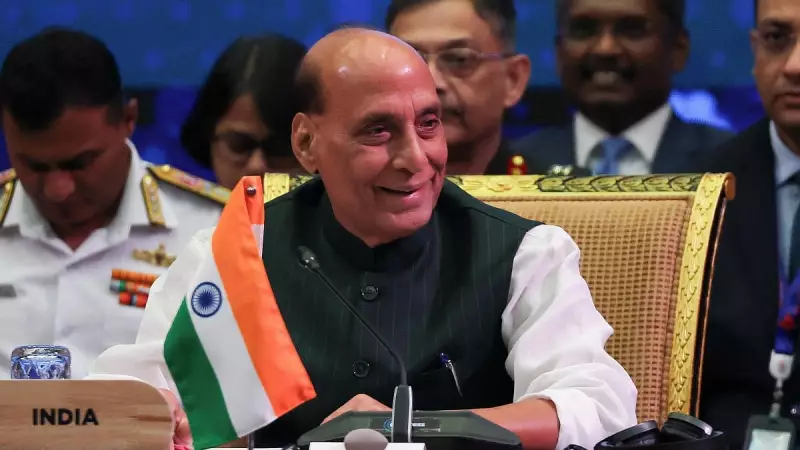
In a powerful address that underscored India's growing strategic role, Defence Minister Rajnath Singh delivered a clear message about the nation's vision for regional stability. Speaking at a significant defence dialogue in the national capital, the minister emphasized that the Indo-Pacific region must remain completely free from any form of coercion or dominance.
A Firm Stance on Regional Security
The Defence Minister articulated India's unwavering commitment to maintaining peace and stability across the Indo-Pacific waters. "We believe in a rules-based order where all nations, regardless of their size or power, can operate without fear of pressure or intimidation," Singh declared during his keynote address.
His comments come at a crucial time when the strategic waterway has witnessed increasing geopolitical tensions and competing territorial claims. The minister's statements reinforce India's position as a key stakeholder in ensuring regional balance.
India's Growing Maritime Influence
During the dialogue, which brought together defence officials and strategic experts from multiple nations, Singh highlighted several key aspects of India's approach:
- Commitment to freedom of navigation and overflight
- Peaceful resolution of disputes through dialogue
- Respect for territorial integrity and sovereignty
- Promotion of a free, open, and inclusive Indo-Pacific
"India's vision for the region is not about exclusion but about creating partnerships that benefit all nations involved," the Defence Minister explained, positioning New Delhi as a stabilizing force in the rapidly evolving geopolitical landscape.
Strengthening Defence Partnerships
The defence dialogue served as a platform for India to showcase its willingness to collaborate with like-minded nations. Singh emphasized that enhanced cooperation in defence and security matters is essential for maintaining the region's delicate balance of power.
This strategic positioning aligns with India's broader foreign policy objectives and its aspiration to play a more significant role in shaping the security architecture of the Indo-Pacific region.






